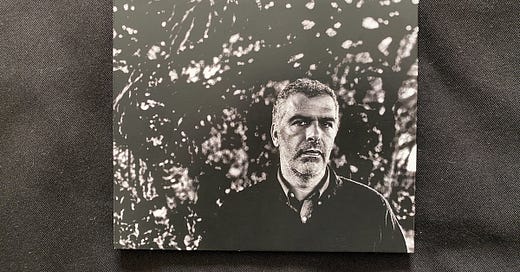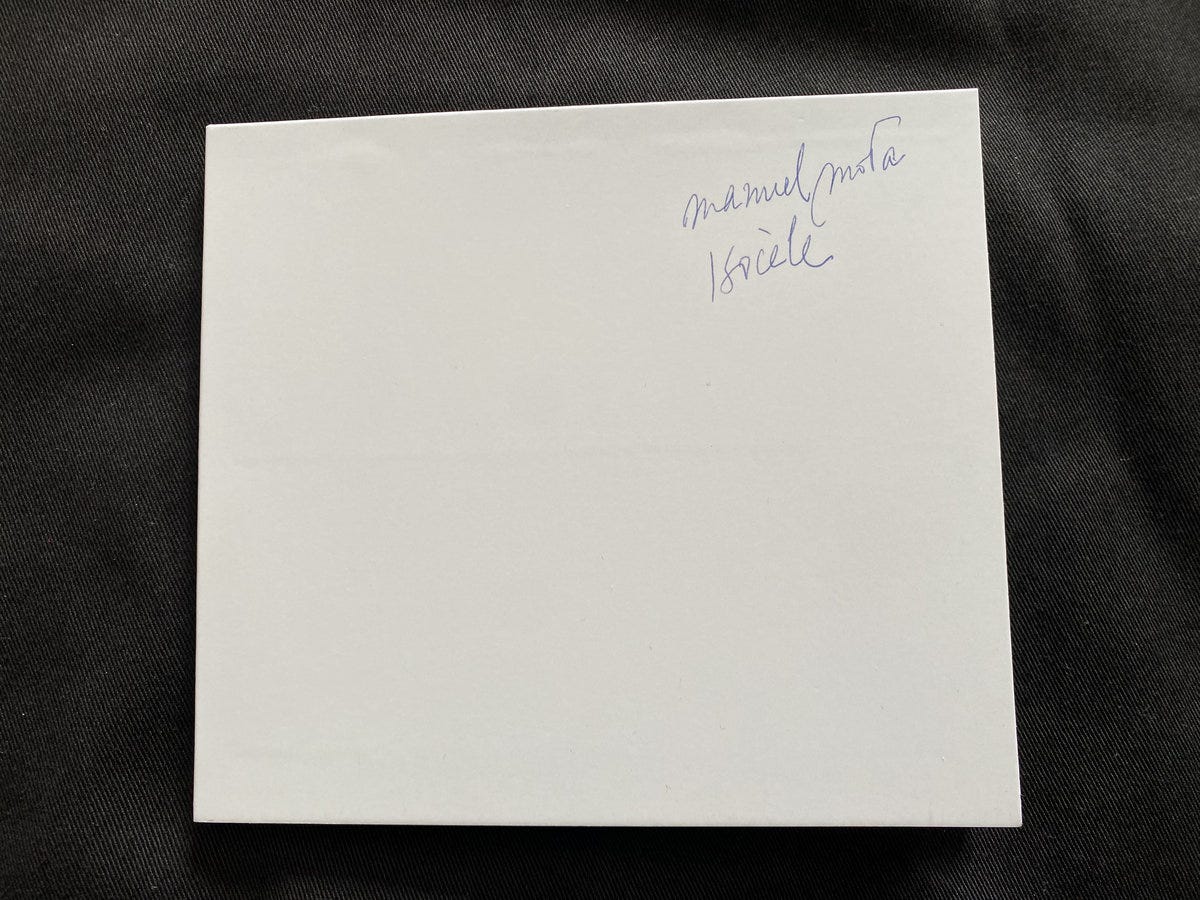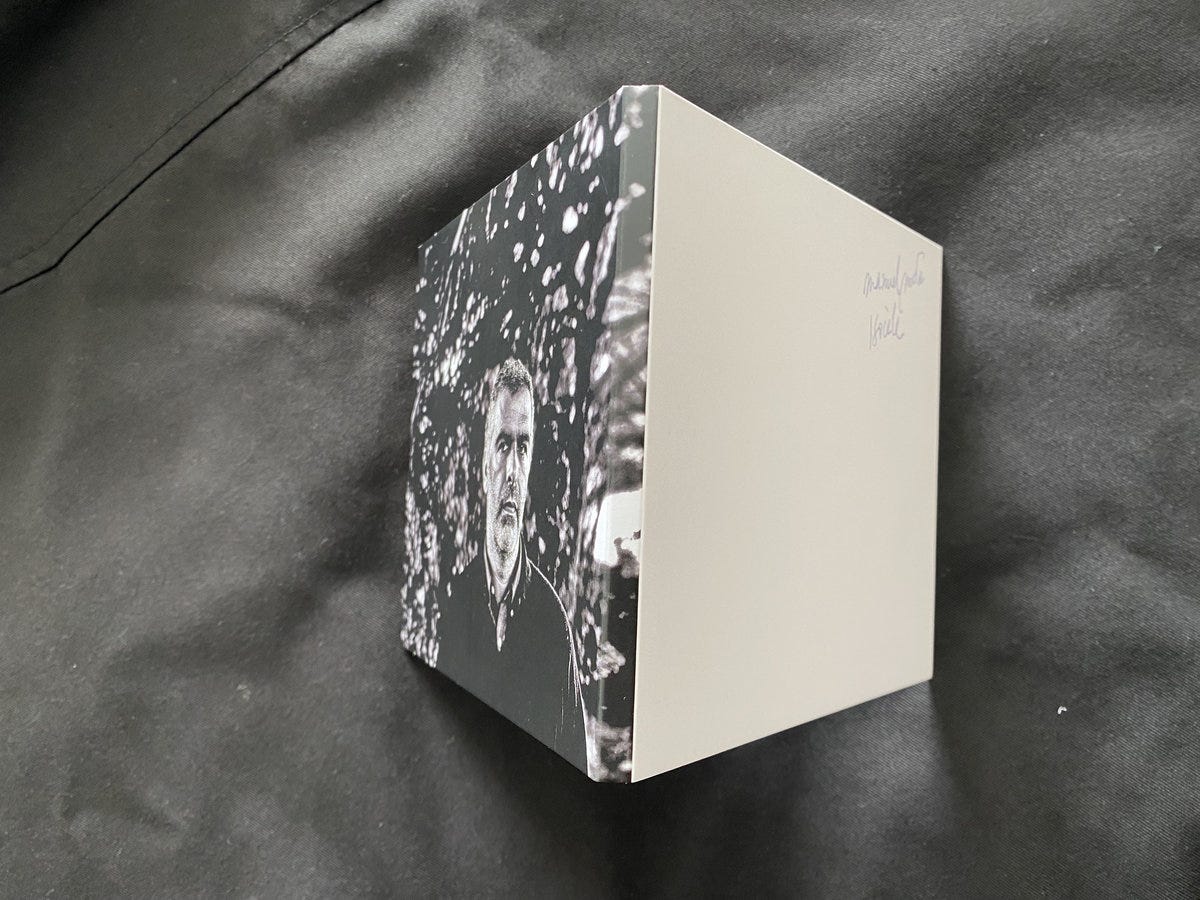Neuguitars 2024 #2: a new form of post covid isolationism in Manuel Mota's music
deep dives in the black waters of "Isocéle" (2023)
Manuel Mota (1970) is a Portuguese guitarist, known for the personal vocabulary he has been able to develop around his guitar. Brilliant improviser and scrupulous experimenter, his music is characterized by the absence of any boundaries between creation, composition and instrumental performance, drawing inspiration from a multitude of vaguely postmodern references, which give his poetics a curious timeless sense. Shy character, little known outside of a close search of enthusiasts, he has never done much to get out of a sort of semi-clandestinity, which in the end seems to be a characterizing element of his work. For years he has continued a quiet and methodical recording activity, characterized by an almost minimal simplicity, the poverty of recording media and the scrupulous attention with which he takes care of every detail of the productions of his independent record company Headlights Recording ( HEADLIGHTS (headlightsrecordings.blogspot.com) .
I have often wondered what consequences Covid has brought to the music sector in the medium to long term. On the one hand I think that the inability of musicians to perform, to be able to play together, to carry out their normal activities, has generated creative growth, accelerated by the forced inactivity and self-isolation forced by Covid 19 Each artist reacted in his own way, ranging from those who almost compulsively published a new track on Bandcamp, a new improvisation with an almost obsessive cadence, almost as if to exorcise their forced isolation with a bulimic activity, to those who chose a more prudent strategy , made up of small steps, of a slow progression, the result of very careful elaboration and revision work. My preference goes to the latter, to those who have been better able to meditate and grasp new signs and signals. No hurry. The world can always wait.
Manuel Mota is one of them. Silent, discreet, careful processor of external stimuli, over time he has been able to build his own personal poetics made of granitic artistic coherence. This new album "Isocéle", released in 2023, is yet another confirmation of this modus operandi. In this work Mota continued the isolationist drift that seemed to characterize his latest previous works. Unlike the pseudo-pastoral peace of Ambient, which other musicians have resorted to during and after Covid, "Isocéle" does not seem to offer, but rather a cold, icy comfort that evoked an uneasy silence with sinister tones. A sort of dark Ambient. Musically, "Isocéle" shares many traits with the Ambient genre. First of all, the emphasis on texture and timbre: his tracks are a fog of luminous drones, generated by elaborate guitars. Secondly, the absence of rhythm. Third, it adheres to Eno's idea that ambient music should not have a defined structure. But instead of being lulling and reassuring, Manuel Mota's music is the incubator of a profound structural discomfort.
Perhaps Mota establishes, between one void and another, a field of emotional tension where his music multiplies the thicknesses of an inexhaustible reality of forms and meanings. His music, his guitar don't seem to know reality, but only levels, textures. The path that Mota knows how to create, the different levels that he knows how to distribute in his music, the succession of veils and patterns perhaps recede into infinity, perhaps appear into nothingness. The fundamental point, which makes Mota's music so fascinating, is perhaps precisely this: his music does not know reality but only levels, textures. Only his guitar and the space around it exist.
This music embodies and embraces the "death of the social". This music seems driven by an almost monastic impulse to escape from the noisy hyperactivity of contemporary culture, for a rigorous aesthetic of silence and sensorial deprivation; it seems to want to express a nihilistic redirection towards one's own inner space.
Mota seems to remind us how much we are made of stories, and how, after the noise of the media and the delirium of social networks, the space of interiority is our last chance to remain human...








Very valid and interesting point concerning the phenomenon of „binch" releasing during the crisis. Speaking only for myself (also having worked in the medical system fighting the virus in second defense row and releasing albums in parallel): I needed the postpandemic situation in order to work more diligently and calm on projects. It was one of the biggest global health crisis since 1918 - you see that in the art too and the phenomenon of the solo recording outburst is as symptomatic and typical for the time. Nevertheless, it's great if certain artists had the power too withstand that impulse and this is one more reason to listen to this great new release.